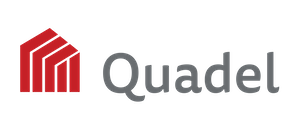
Quadel Director, Brooke Etie, works with PHAs across the country to optimize their HCV programs, including implementation of landlord outreach strategies.
As the need for more affordable housing increases, Public Housing Agencies (PHAs) across the country are finding new ways to strengthen partnerships with landlords and expand housing opportunities for families. One strategy includes implementing Landlord Liaison Programs to provide landlords with direct support and a reliable point of contact for case management services.
In this month’s blog, Quadel Director, Brooke Etie, talks about the benefits and challenges of a Landlord Liaison Program – and why it’s time for all agencies to have one.
A Program Looking to Solve Problems
Although Landlord Liaison Programs are not new, their role has become more critical in today’s housing market. Programs are gaining momentum as PHAs recognize the challenges landlords face with paperwork, inspections, and inconsistent policies. By addressing landlord issues more efficiently, PHAs can improve landlord retention and recruitment at a time when affordable housing stock remains low.
“The program’s role and impact has changed over the years, especially with the recent shifts in the housing market, funding availability, and new technology,” Etie said. “Instant responses and tracking everything on an app has become the new expectation, and landlords participating in an HCV program are no exception. It’s time to change the way PHAs operate and provide service delivery.”
Etie said a well-run program provides landlords with:
- Better communication and case management
- Faster lease-up processes
- Increased program compliance
- Improved trust and confidence
A Well-Managed Program Matters
While Landlord Liaison Programs provide numerous benefits and should increase overall landlord satisfaction, Etie noted that since these programs are not HUD-mandated, there are no official regulations for PHAs to follow. This means, executive directors must monitor staff activity to ensure effectiveness and service delivery. Well-documented standard operating procedures and policies are necessary.
“From experience, I’ve noticed that good intentions don’t always lead to good outcomes. If a program is launched, but not managed well, it risks becoming just another area that generates a high volume of customer service complaints,” Etie said. “It’s important to set clear goals and expectations for the program from the start. Define what the program should achieve and which challenges it means to resolve. Without clear benchmarks, it’s impossible to measure success or hold the program accountable.”
“Gauging the Audience” and Following Through are Critical
Etie said all PHAs looking to implement a Landlord Liaison program face the same main issue: where to begin.
PHAs should focus on specific groups of landlords – such as long-time landlords, those with the highest and smallest number of units, and those with the most complaints. It’s imperative PHA leadership listen to each group’s separate issues so the program can provide solutions for all.
Most importantly, PHAs must make changes to resolve common landlord issues.
“This is where the real work comes in. To gain real program traction, the focus should always be what matters most to landlords,” Etie said. “PHAs must identify and address bottlenecks within agency processes that slow down approvals, inspections, or HAP contract executions.”
Implementation is Necessary for Affordable Housing Stock
Etie believes the initial investment of time and data collecting is worth it for the long-term benefits of Landlord Liaison Programs. These programs encourage constructive feedback to improve landlord experiences, break down participation barriers, and debunk myths about the program and participants.
If PHAs don’t have a program, they need one.
“If the goal is to increase the number of affordable housing units available to our families, the answer is clear. Every positive landlord experience has the potential to open the door to more families, even in other communities,” Etie said. “Landlord engagement is not only about meeting operational goal. It’s about building trust and fostering long-term partnerships. When landlords see the program reduces delays and improves payment timelines, participation and satisfaction will follow.”
Quadel provides HCVP consulting services, including operational assessments and implementation plans. To see how Quadel can help implement or improve upon Landlord Liaison programs, request a quote today.
